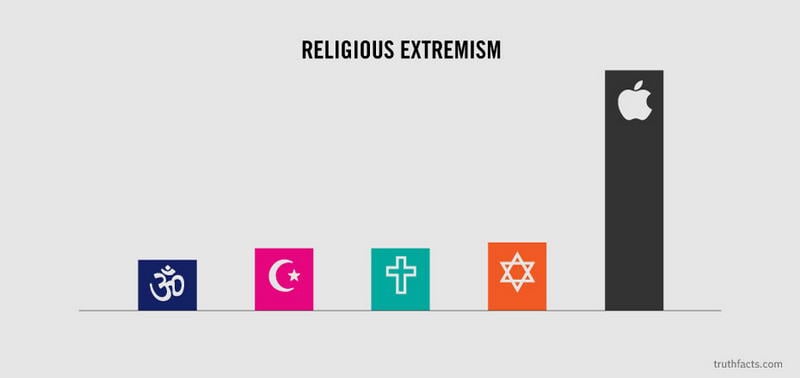In the vast universe of businesses, a start-up is like a shooting star – bright, full of energy, and blazing its own trail. What precisely defines a start-up, though? Fundamentally, a start-up is a young venture spearheaded by individual founders or entrepreneurs. Their goal? To introduce a groundbreaking product or service to the market. These ventures are characterized not by their size, but by their growth intentions and forward momentum.
While corporations might have deep pockets and extensive resources, start-ups possess something equally valuable: innovation. They’re nimble, agile, and brimming with disruptive ideas. They often emerge from a perceived gap in the market, powered by technology or a novel business perspective. But with the market becoming increasingly crowded, the importance of the right start-up needs becomes evident. Equipping your start-up with the right tools and strategies is crucial for its journey ahead.
With the advent of the Internet, cost of entry for many start-ups has diminished significantly, but a web presence is not the only thing your start-up needs to succeed. Check out 10 Most Effective Tools Your Start-Up Needs for Success.
10 – The Cloud: Keep Files Accessible
If you’re on the go with your start-up, you need to make sure you have the documents and data sheets you need. Using a cloud storage solution (like Dropbox, Google Docs, Evernote or OneDrive) makes your documents easily accessible from multiple devices, saves your changes in real-time, and allows you access to them anywhere you have an Internet connection. Documents can be shared, and collaboration can occur from miles away. This allows for greater efficiency and flexibility that is commonly needed by start-ups.
09 – Communication Tools
No matter where your team is, staying in contact is essential. Start-ups need a great communication system. Mitel offers tools like visual voicemail, conferencing, desktop and application sharing, private and public chat, and more that will help your team stay connected.
08 – Customer Relationship Management System (CRM)
Stay organized and track your contacts with customers, and potential customers, with this helpful set of tools. Send emails, assign communications to team members, and record history on clients. There are many CRMs to choose from including SalesForce, Nimble, Streak and more.
07 – Social Media Presence
Define your target audience, research where they are on social media, and secure social media profiles on those sites. Start connecting with your customers and potential customers. A LinkedIn page is a must for any business, even for any small retail business.
06 – A Blog with Valuable Content
A blog is critical to your ability to connect with customers and potential new customers. Update them on issues in your industry, give them helpful advice, and/or entertain them. Engaged customers are more apt to buy and refer others to you.

05 – An Engaging Website
A business without a website is like an unmarked storefront. People may find you anyway, but it’s exponentially harder for them to do so. A website can be quickly updated with valuable news and content. If your website ranks well on Google and other search engines, you’ll receive organic traffic from a search.
Note: Websites are not electronic brochures. They must be updated and kept fresh. The content should be written for the audience, as well as search engines, and be easily shareable.
04 – Project Management Software
There’s a lot going on in a start-up. Staying on task is essential. There are many project management tools out there such as Basecamp and Teamwork. Take some time to audition them and choose the one that suits your business needs and the size of your team.
03 – An Enterprise Email Service
This one is so basic, it’s impossible to forget, but here are some tips for start-ups. Assuming you have a website, you should also have email through your web host. Your business email shouldn’t include @yahoo.com (or @aol.com, etc.). That’s fine for a personal account, but looks unprofessional in a business setting. Having an email with your business URL is much more legitimate. There is one exception: many businesses are using Google Workspace.
02 – A Method for Product Demos
Assuming you have something to show a potential client – either in way of a product or a service demonstration – you need to be able to share your screen. This can be done through a GoTo Meeting interface or using a tool like Join.me. The beauty of Join.me is that no software is needed on your customer’s side.
01 – Social Media Monitoring and Posting Software
Start-ups must listen and take part in conversations in the social sphere. Social media monitoring software like Hootsuite (free and paid version), Social Mention or Tweetdeck help you make sense of what others are saying on social media platforms.
The other side of listening is adding to the conversation. Having a reliable way to publish content is essential, particularly if you don’t have someone sitting on social all day. You can schedule your social media posts using tools like Hootsuite, Buffer or SproutSocial.
Starting a business is a busy time. Making sure you have the tools to maximize your efficiency is critical to your success. Take your time to figure out what is right for you, as most of these categories offer pricing for every budget.
The Blueprint of Triumph: Cracking the Code of Successful Start-Ups
In a world teeming with innovation, why do some start-ups flourish while others falter? The answer often lies hidden beneath layers of strategy, adaptability, and pure grit. While it’s true that a remarkable idea is the heartbeat of every successful venture, the sinews that hold it all together are just as vital.
1. Vision and Adaptability:
At the core of every soaring start-up lies a clear, unyielding vision. This vision acts as a compass, steering the venture through tumultuous waters and uncharted territories. However, just having a vision is seldom enough. The real game-changer? Adaptability. The business landscape is in perpetual flux. The start-ups that succeed are those that remain flexible, recalibrating their strategies in the face of challenges, pivoting when needed, and making data-driven decisions.
2. Robust Company Culture:
The foundation of a start-up is its people. When every individual in a team aligns with the company’s ethos, objectives, and vision, magic can happen. It’s not just about hiring the best talent, but about nurturing a culture where ideas bloom, risks are taken, and failures are seen as stepping stones. For those wondering what every startup needs, an inspired and cohesive team undoubtedly tops the list.
3. Embracing Technology:
In today’s digital age, leveraging technology isn’t just an option; it’s a necessity. The right tool for startup operations can streamline processes, automate repetitive tasks, and free up time for innovation. From robust CRMs to AI-driven market analytics tools, embracing tech solutions can catapult a start-up ahead of its competitors.
4. Resilience:
Every entrepreneurial journey has its share of peaks and troughs. Challenges, setbacks, and failures aren’t just possible; they’re probable. The mettle of a start-up is tested not by the absence of challenges but by the ability to overcome them. Grit, perseverance, and an unwavering belief in the vision are often the unsung heroes behind start-up success stories.
5. Continuous Learning and Upgradation:
The world isn’t static. New technologies emerge, market dynamics shift, and consumer preferences evolve. Successful start-ups remain students throughout their journey, continuously learning, evolving, and staying attuned to market shifts. This also means investing in training, workshops, and courses to keep the team’s skills razor-sharp.
6. Network Building:
In business, it’s often not just what you know, but who you know. Building a robust network can open doors to partnerships, collaborations, and even funding opportunities. It’s about forging genuine relationships, not just transactional connections.
7. Market Research:
Understanding your audience, their needs, preferences, and pain points is paramount. In-depth market research can offer valuable insights, helping start-ups tailor their offerings and align their strategies with market demands.
So, for start-ups aiming for the stars, it’s a mix of vision, adaptability, resilience, and leveraging the right tools and strategies. With these in place, even the most daunting challenges can be transformed into stepping stones for success.































































